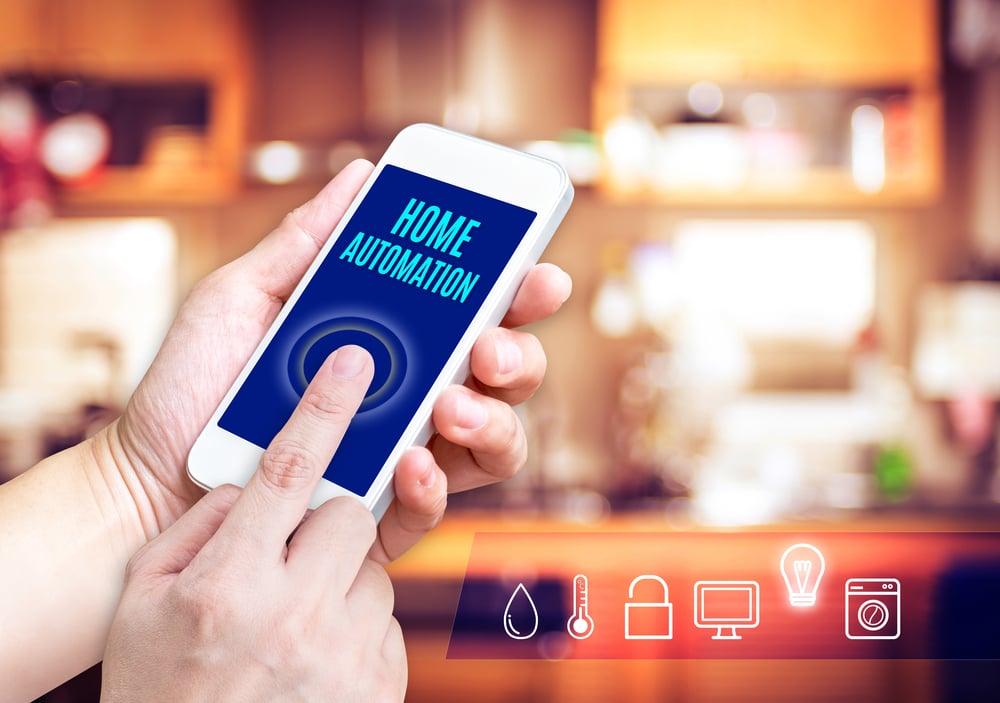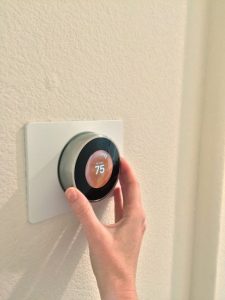Self-learning home devices learn your habits and adjust themselves accordingly for an unprecedented level of convenience.
Picture this: You’ve had an exhausting week — all you want to do is go home and relax. It’s hot outside, but you arrive to a perfectly cooled home. As dusk rolls in, your blinds follow suit, as if they’re chasing the sunset. You make your way to your bedroom and practically crumble into bed. The lights dim as the temperature dips and you drift off into a peaceful sleep.
This might sound like a futuristic dream, but actually, it’s a reality. In today’s world, millions of smart gadgets are available to make your home more intelligent. But these “smart” devices are limited to homeowner’s programming capabilities, which is usually turning on and off at certain times. Genius? Not so much. Self-learning home devices are different. They learn your habits and adjust themselves accordingly for an unprecedented level of convenience. Here, we’ll take a look at some of the best connected devices and the ways they can observe patterns, interpret data, or use artificial intelligence to help make your life easier.
-
Self-Learning Thermostats
Keeping your house at an ideal temperate can be pricey. About 50 percent of your energy bill can be attributed to running the heat or air conditioning. A manual thermostat can be programmed to adjust temps at certain times but if you leave for vacation and forget to turn it off, you’re out of luck.
Smart thermostats are a game-changer. They can learn your favorite temp and make sure you’re never too hot or too cold. If you’ve cranked the AC a few days in a row, your thermostat will pick up on this pattern and adjust the temperature settings accordingly. And when you leave for work or a week-long vacation, sensors and GPS will alert your thermostat to automatically save energy (and money).
2. Self-Learning Blinds
There’s nothing worse than being woken up at the crack of dawn on a weekend to sun beams hitting you square in the face. Or the opposite — you can’t seem to roll out of bed because the room is so dark that it must still be nighttime, right?
Smart blinds can help address both of these issues. The latest intelligent shades connect to your compatible smart-home systems and adjust themselves automatically. Simply program your shades to move your window treatments to your preference. And to take it one step further, some smart blinds can follow the sun to maintain the same level of light as the season’s change, which saves energy and money (without any effort on your part).
3. Self-Learning Beds
Even your bed can have brainpower. Tech-savvy mattresses covers sync up with your thermostat and bedroom lighting for a full sensory experience. As you begin to snooze, the temperature and lights of your room and bed adjust to your preference. When you doze off completely, they adjust again or turn off completely. These self-learning mattress protectors can also track your sleep patterns and help you achieve your best night’s rest.
4. Self-Learning Surveillance
Being able to keep an eye on your home while you are away is the ultimate peace of mind, as one in 36 homes are burglarized each year. Smart surveillance systems employ innovative learning technology like facial recognition to keep your home safe from unfamiliar faces. Some cameras also have self-learning video analytics, which automatically adjust their settings based on the scene conditions to give you the clearest view possible. Plus, they connect to Wi-Fi for 24/7 footage, pinged right to your smartphone from anywhere with internet.
5. Self-Learning Spectrometer
This might not seem like an everyday item, but smart food spectrometers are making waves in the kitchen. This tool interprets algorithms to understand food freshness, sweetness and quality. In real-time, it can determine if your meat has gone bad, if your whiskey is the real deal or if that farmer’s market fruit is fresh.
Bonus: Self-Learning Home Controller
As seen at the 2018 Consumer Electronic Show, a self-learning home controller takes your smart home gadgets and make them smarter. It uses artificial intelligence to understand your home patterns, picking up data from your smart appliances, lighting and electricity. It automates mundane tasks without scheduling or hassle to better manage your home and save money. Although it’s not available for purchase yet, this home controller could help smart gadgets reach their full potential.
As smart home gadgets continue to get smarter and learn on their own, it’ll be fascinating to see how they will predict our behavior to save energy, slash bills, and most importantly, make our lives better.
Perhaps one day, there will be no snoozing through alarms (your phone will know to wake you up), no burnt banana bread (your oven will know it’s fully baked), and no parties after midnight (your lights know bedtime is at 10PM). But hopefully these self-learning devices will learn that sometimes humans like to break the rules.





